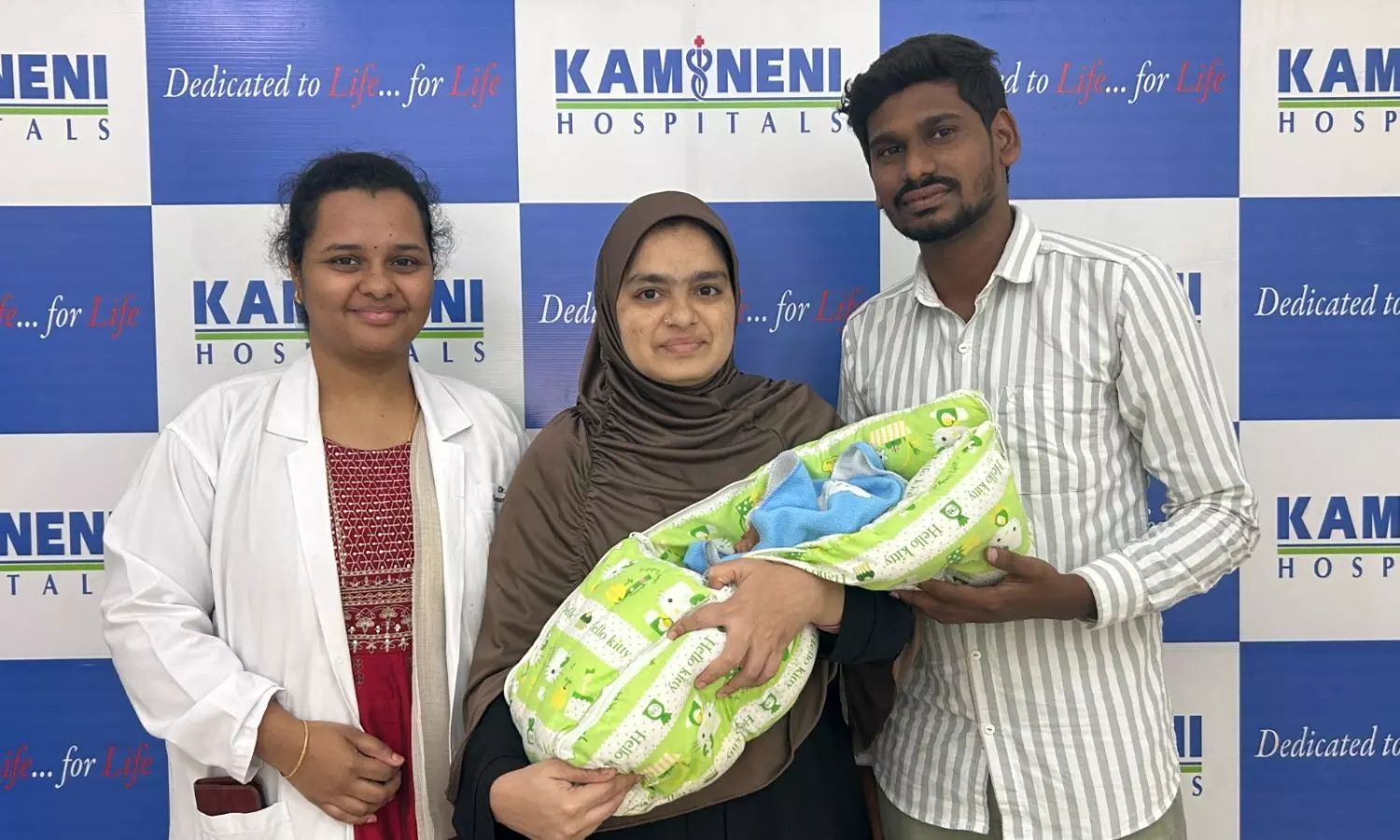Premature Baby Survives Against All Odds After 3-Month Fight

Hyderabad: A couple from Jayashankar Bhupalpally district, after struggling for years to conceive, finally opted for IVF treatment and were delighted to know they were expecting twins. However, at just six months of pregnancy, the mother developed abdominal pain and water leakage. The anxious couple rushed to Hyderabad for delivery.
Doctors managed to delay labor for one week, but at 26 weeks of pregnancy, premature twin boys were delivered. Both babies developed severe infections soon after birth and were shifted to Kamineni Hospital on the second day. Unfortunately, one baby succumbed within a week due to a severe fungal infection and kidney complications.
The second baby, however, continued to fight multiple health challenges and eventually survived, earning the name of a “baby who conquered death.” Providing details, Dr. R.V. Soujanya, Consultant Paediatrician & Neonatologist at Kamineni Hospitals.
“For IVF pregnancies, babies rarely remain in the womb for the full term of 38–40 weeks. A minimum of 28 weeks is considered relatively safe. But in this case, the mother went into labor as early as 23–24 weeks, and by the 26th week, the twins were delivered. When water leakage occurs for more than six hours before delivery, the risk of bacterial and fungal infections is very high.
The surviving baby was extremely critical. He could not cry after birth, developed severe lung problems, and required ventilator support for nearly two months. He also suffered from repeated NEC (Necrotizing Enterocolitis) attacks, making it impossible for his intestines to digest milk.
This caused abdominal swelling, vomiting, drop in oxygen levels, and irregular heart rate. NEC occurred more than three times, and he had to be fed glucose and nutrients via a feeding tube using Total Parenteral Nutrition, which is very rarely done.
Along with this, the baby had very low hemoglobin levels due to poor red blood cell production, leading to repeated blood transfusions, almost 12 units over three months. He also suffered from bacterial and fungal infections and low blood sugar.
We treated him with antibiotics, antifungal medicines, and TPN nutrition for nearly six weeks. By then, he reached 30 weeks of corrected gestational age and gained 1.05 kg weight. Slowly, he responded to treatment, and after two months, ventilator support was removed, though oxygen was continued. His fever subsided, and hemoglobin improved.
Because of critically low hemoglobin, we avoided frequent blood tests and relied mostly on symptoms to guide treatment. We also ensured the baby experienced as little pain as possible, as this is vital for brain development. by 36 weeks, the baby weighed 1.5 kg and was shifted from NICU to the ward.
The mother was trained in feeding techniques and baby care. At 38 weeks, the baby reached 1.7 kg and was discharged.
After three months of intensive care, the baby, born extremely premature and critically ill, is now stable, gaining weight, and showing improving health. In a sense, he has overcome a life-threatening start.
Ongoing monitoring of his growth and development—like neck control, crawling, responses to sounds, and vision—along with regular medical check-ups, will remain essential.


